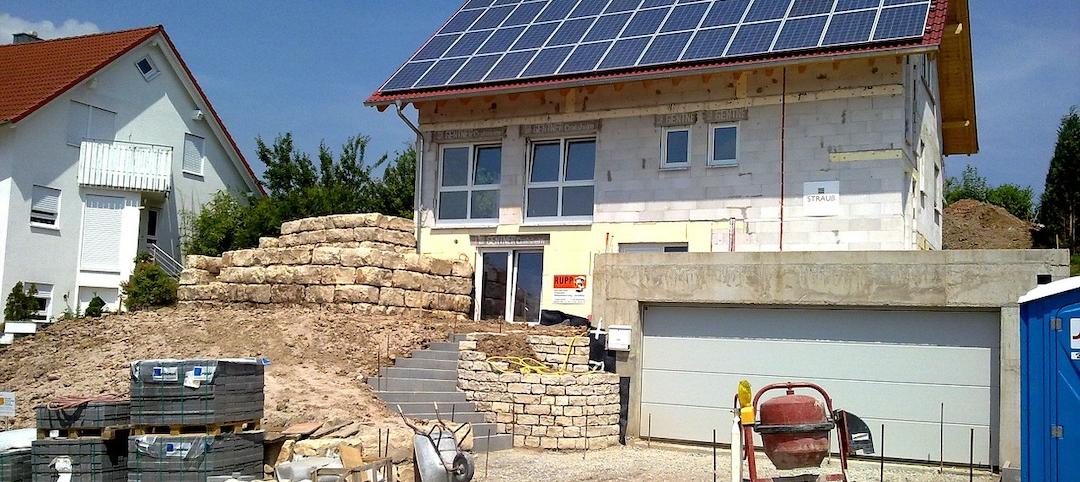The Gypsum Association released updates to both GA-221 Repair of Joint Ridging and GA-222 Repairing Screw or Nail Pops standards publications. Each set of recommendations clarifies best practices associated with common wallboard repairs.
Joint ridging, or beading, is a uniform, fine linear deformation that occurs at the joints of finished and decorated gypsum panel products. Compression at the edges or ends of the panels due to extreme fluctuations of temperature and humidity is the most common cause of ridging; however, misaligned framing can also contribute to the problem. The Gypsum Association recommends waiting until a new structure has experienced at least one complete heating/cooling cycle before making repairs.
Fastener popping occurs most commonly from lumber shrinkage due to initially high moisture content in newly constructed wood framing. Overly long fastener length contributes to the problem. While fastener popping that appears before or during finishing and decoration should be repaired immediately; popping that occurs a month or more into the heating season should wait for repair until the season’s end.
In the case of fastener popping, the secure reattachment of the gypsum panel product to the framing is essential. All new screws or nails should be of the proper length. Key to the repair methods outlined in both GA-221-14 and GA-222-14 is careful sanding and treatment with joint compound as well as observing recommended drying times prior to redecoration.
Related Stories
Codes and Standards | Oct 28, 2021
Design competition launched to show role of mass timber in decarbonization
Forest Service and Softwood Lumber Board will award $2 million in grants to winning teams.
Codes and Standards | Oct 27, 2021
Texas reforms series of contractor laws
Measures seen as making it easier to do business in the state.
Codes and Standards | Oct 26, 2021
Drownings during Hurricane Ida point out FEMA flood map flaws
Eleven people drowned in New York City in areas marked as low risk.
Codes and Standards | Oct 26, 2021
Dept. of Energy’s REScheck tool updated for the 2021 International Energy Conservation Code
Previous version incorporated 2018 code.
Codes and Standards | Oct 20, 2021
New York City passes overhaul of construction codes
Over 600 major changes along with thousands of smaller updates slated for 2022.
Codes and Standards | Oct 20, 2021
One-quarter of U.S. critical infrastructure at risk of failure due to flooding
Police and fire stations, hospitals, airports, and wastewater treatment facilities face threat.
Codes and Standards | Oct 19, 2021
Pittsburgh enacts first-in-the-nation “Dark Sky Lighting” law
Applies to all city parks, facilities, and streetlights.
Codes and Standards | Oct 15, 2021
New Calif. law mandates use of lead-free plumbing fixtures
Must meet NSF/ANSI/CAN 61-2020 in 2023.
Codes and Standards | Oct 14, 2021
Building industry leaders urge governments to boost emissions reductions targets
Scores of large AEC firms and organizations sign letter to UN’s COP 26 group.
Codes and Standards | Oct 13, 2021
FEMA’s new flood insurance plan will sharply raise insurance costs for seaside properties
Risk Rating 2.0 will have more accurate assessment of flood risk.

















